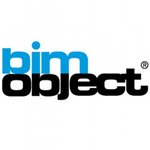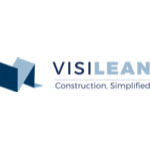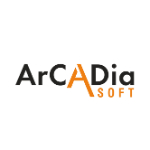List of Best BIM Software
Showing 10 of 22 productsRevizto is a software designed to facilitate collaborative project management and enhance productivity in the field of architecture, engineering, and construction. Its innovative technology allows for seamless communication, streamlined workflows, is...Read Revizto Reviews
BIMx is a software designed to revolutionize the way architects, engineers, and construction professionals collaborate and manage their building projects. With its advanced features and user-friendly interface, BIMx simplifies the process of BIM (Bui...Read BIMx Reviews
BIMobject is a software that is changing the way architects, engineers, and construction professionals design and create buildings. With its user-friendly interface technology, BIMobject streamlines the entire design process, making it easier and mor...Read BIMobject Reviews
StreamBIM, the innovative construction management software designed to streamline communication and collaboration among project teams. With its user-friendly interface and powerful features, StreamBIM simplifies the entire construction process, makin...Read StreamBIM Reviews
VisiLean is a all-in-one construction project management tool that streamlines collaboration and boosts productivity. With real-time updates, intuitive features, and effortless communication, VisiLean revolutionizes the way construction teams plan, t...Read VisiLean Reviews
LOD Planner is a software that simplifies and streamlines your planning process like never before. With its intuitive interface features, LOD Planner empowers users to efficiently manage their projects and tasks, allowing for increased productivity a...Read LOD Planner Reviews
ActCAD is a CAD software designed for architects, engineers, and draftsmen. With its user-friendly interface and a wide range of tools and features, ActCAD offers an efficient and seamless workflow to create accurate and detailed designs. Take your d...Read ActCAD Reviews
ArCADia BIM 12 is a groundbreaking software revolutionizing the building industry. Packed with innovative features functionality, this dynamic BIM solution offers a superior design experience. From seamless collaboration to precise modeling, ArCADia...Read ArCADia BIM 12 Reviews
VRcollab BIM is a software that combines the power of virtual reality with Building Information Modeling (BIM) technology. Designed to enhance collaboration and improve project management, VRcollab BIM allows architects, engineers, and construction p...Read VRcollab BIM Reviews
Autodesk is a leading software company that has been revolutionizing the world of design and engineering for over 35 years. Known for its innovative solutions, Autodesk offers a wide range of powerful tools and services that empower professionals to...Read Autodesk Reviews
- What Is BIM Software?
- Top Reasons Why Businesses Need BIM Software?
- What Are the Top Key Features of BIM Software?
- What Are the Top Benefits of BIM Software?
- What Are the Steps to Choose the Right BIM Software?
- What Are the Types of BIM Software for Different Industries?
- What Are the Technology Trends for Best BIM Software?
- What Are the Deployment Options for BIM Software?
What Is BIM Software?
BIM software refers to a category of computer applications specifically developed to facilitate the design and project management of construction endeavors. The provided content encompasses all the requisite data for the purpose of strategizing, conceptualizing, constructing, and overseeing edifices, encompassing intricate three-dimensional representations of the architectural framework.
Additionally, the program facilitates seamless collaboration with other individuals involved in the project. BIM modeling software facilitates seamless information exchange among diverse teams, enables effective visualization of design, and enables comprehensive monitoring of construction progress.
Building information management software possesses a versatile applicability, catering to a wide range of professionals including architects, engineers, contractors, and developers. BIM software enables the simulation of the construction process of a building inside a three-dimensional environment. Anticipating future issues can be achieved through the utilization of simulations and tests.
Additionally, the best building information modeling software facilitates the monitoring of modifications throughout the entirety of the design and construction phases. BIM building information modeling software facilitates the generation of a digital model of a building, which may then be utilized to inform future decision-making processes.
This implies that the design can be modified more readily, if necessary. Building information management software facilitates enhanced efficiency and cost-effectiveness in the construction process.
Top Reasons Why Businesses Need BIM Software?
1. Improved collaboration: BIM software plays a crucial role in promoting effective cooperation among team members, hence enhancing the speed and efficiency of project delivery.
2. Cost savings: BIM building information modeling software facilitates the monitoring of project expenses, hence enhancing the precision of budgetary estimations and diminishing overall expenditures.
3. Improved efficiency: BIM modeling software facilitates the optimization of operations, leading to enhanced production and output.
4. Better design coordination: BIM software facilitates the optimization of operations, leading to enhanced production and output.
5. Better asset management: The best building information modeling software plays a crucial role in facilitating the effective management and operation of assets over their entire lifespans.
6. Reduces risk: BIM building information modeling software plays a crucial role in mitigating the inherent risks associated with construction projects by offering timely alerts and notifications on potential problems.
7. Increased visualization opportunities: The best BIM software facilitates the generation of accurate and immersive visual representations of architectural designs, enabling architects and engineers to effectively convey their intended design concepts.
8. Time savings: Building information management software streamlines laborious operations, hence facilitating expedited project delivery.
9. Clashes detection: The best building information modeling software possesses the capability to identify design incompatibilities among various parts prior to the commencement of construction activities.
10. Improved sustainability: Building information management software facilitates the identification of building elements that possess potential for enhancement in terms of energy efficiency, so contributing to the overall improvement of sustainability.
11. Automated documentation: BIM modeling software facilitates the automated generation and revision of documentation and drawings.
12. Validation of process: BIM building information modeling software plays a crucial role in ensuring compliance with rules and regulations by effectively addressing inconsistencies that may arise across various projects.
13. Accurate analysis: Building information management software facilitates precise analysis of a structure, enabling the verification of its performance both before to and throughout the construction process.
14. Improved communication: BIM software facilitates efficient information flow among users, hence minimizing communication cycles.
15. Enhanced lifecycle management: The best building information modeling software facilitates the identification and effective management of any issues or modifications that may arise during the whole duration of a project.
What Are the Top Key Features of BIM Software?
The top Key Features of BIM software include:
1. 3D Modeling and Design: The BIM management software enables users to generate three-dimensional models of a building, structure, or system. Through the utilization of sophisticated design tools, individuals have the capability to generate precise and lifelike models.
2. Automation: Automation features can provide businesses with advantages by enabling expedited and streamlined procedures. Automation is a valuable tool that enables users to reduce the amount of time they spend on monotonous chores, such as the creation of documents and manual calculations.
3. Collaboration: The best building information modeling software offers advantageous prospects for facilitating team cooperation. Collaborative efforts among multiple users can facilitate concurrent engagement in a shared project, hence expediting the process of design development.
4. Analysis and Data Visualization: Top BIM software facilitates the analysis and visualization of data for users. Design teams have the ability to examine their project designs from several perspectives with the aim of identifying any design defects and recognizing new opportunities.
5. Cost Estimation: Cost estimating tools assist users in forecasting the financial implications of their project designs. Users also have the ability to compare the predicted cost with the actual prices, which aids them in effectively managing their projects.
6. Simulation: This functionality enables users to replicate various scenarios for the purpose of evaluating the feasibility of their design proposals. Simulation tools are valuable resources that enable users to thoroughly assess the potential effects of various design choices.
By utilizing these tools, users are empowered to make more educated decisions based on a comprehensive understanding of the potential outcomes.
7. Virtual Reality: By utilizing Virtual Reality (VR) techniques, individuals are able to gain a firsthand experience of their creations. Furthermore, individuals possess the capability to visually perceive the appearance of their designs inside a certain context, so enabling them to enhance their decision-making process in design.
8. Open Platform: BIM software frequently offers an Open Platform that facilitates the integration and extension of third-party applications. Through the provision of an inclusive platform, individuals are afforded the opportunity to expand and personalize their software in order to cater to their own requirements.
What Are the Top Benefits of BIM Software?
The top benefits of BIM software include:
1. Increased Efficiency: Building information management software streamlines collaboration and communication between different stakeholders, enabling teams to work together quickly and effectively. This reduces the time required to make decisions, execute tasks and manage projects.
2. Improved Accuracy: BIM software provides a digital model of a project’s design and components. This greatly reduces the potential for making mistakes in the design phase, leading to improved accuracy and quality of the final product.
3. Better Documentation: Building information management software helps to create highly detailed project documentation, which can then be used to help make decisions and analyze the project. This allows teams to be better informed, leading to higher-quality project outcomes.
4. Reduced Costs: By reducing the time required to complete a project as well as reducing the potential for making mistakes, top BIM software helps teams to save money and be more efficient.
5. Improved Documentation: BIM modeling software helps to create detailed, highly accurate 2D and 3D documentation that can be used for a variety of purposes, including building operations, maintenance, renovations, and more.
6. Improved Visualization: BIM management software enables designers and architects to create highly detailed imagery that makes it easier to visualize a project before it is built. This helps teams to identify potential problems early on, allowing for faster implementation of solutions.
What Are the Steps to Choose the Right BIM Software?
1. Identify your needs: The first step is to determine the specific needs of your organization and develop an understanding of what will be best for your projects, which will help you narrow down the selection of BIM management software that is a potential fit.
2. Research the best BIM software options: Once you have identified your needs, you should begin researching and evaluating the available software solutions. Research and compare features and capabilities, ease of use, pricing and customer support.
3. Evaluate trial versions and demos: Once you have narrowed down your options to two or three, you should take advantage of the free trials or demos to see how the software works and if it matches the requirements of your organization.
4. Get feedback from stakeholders: Before committing to the best BIM software, you should consult the opinions of your stakeholders, including architects, designers and project managers. This will help you determine which software is the best fit for their needs.
5. Make an informed decision: After considering the input of stakeholders and evaluating the trial versions and demos, use the data collected to make an informed decision about which BIM software is the best fit for your organization.
What Are the Types of BIM Software for Different Industries?
There exist three primary categories of top BIM software that cater to distinct industries: Architectural BIM, Structural BIM, and MEP Fitting BIM.
1. Architectural BIM modeling software is employed in the process of designing, visualizing, and documenting the structure and constituent elements of a building. This technology enables users to digitally construct and alter a three-dimensional model, so facilitating the attainment of the intended design.
2. Structural Building information management software is employed for the purpose of modeling and doing analysis on the physical components of a structure, including beams, columns, and walls. Additionally, it serves to evaluate the social, environmental, and economic ramifications associated with the project.
3. Finally, the utilization of MEP Fitting BIM management software is employed for the purpose of designing and conducting analysis on the automated systems, including heating, ventilation, air conditioning, and plumbing, that are essential for the operational effectiveness of a structure.
The BIM management software enables users to streamline operations and reduce errors in the design of intricate MEP systems.
What Are the Technology Trends for Best BIM Software?
Cloud-based software is considered to be a significant trend in the field of BIM Building Information Modeling software. The best BIM software refers to software applications that are operated and maintained by cloud service providers, hence obviating the necessity for a tangible server infrastructure.
Cloud-based BIM management software offers enhanced accessibility, facilitating real-time access to additional data and capabilities, hence streamlining collaborative efforts within teams. Another emerging phenomenon in the field is the proliferation of artificial intelligence (AI) applications.
Artificial intelligence (AI) has the potential to streamline several processes, enhance the accuracy of user behavior prediction, and foster improved teamwork and collaboration inside organizations.Artificial intelligence (AI) has the capability to enhance the efficiency and precision of challenging activities such as object recognition, cost estimate, and 3D modeling.
The significance of data management and communication has been growing in tandem with the utilization of advanced BIM modeling software. Efficient workflows necessitate the fundamental capability of seamlessly sharing data and fostering collaboration across many teams.
Furthermore, it is imperative to ensure the collection, analysis, and secure storage of data. In recent times, there has been a notable emphasis within the realm of top BIM software on enhancing the user experience.
This entails enhancing the software's intuitiveness, interactivity, and user-friendliness. The prevalence of configurable features such as enhanced aesthetic customization, adaptable dashboards, and cloud-based software solutions is steadily rising.
What Are the Deployment Options for BIM Software?
When using BIM building information modeling software, there exist three primary alternatives. The initial alternative is the deployment method that utilizes cloud-based infrastructure, which is widely favored among users.
1. Cloud-based BIM software is deployed on cloud infrastructure, facilitating users to safely retrieve their BIM data from any geographical location. This particular option is particularly well-suited for teams who engage in remote work or operate across numerous office locations.
2. The alternative choice pertains to the implementation of on-premise infrastructure. The utilization of on-premise deployment enables enterprises to securely keep their BIM modeling software data within their own dedicated infrastructure.
This feature can offer significant benefits to organizations that necessitate stringent data management and the flexibility to tailor their deployment and software versions according to their own requirements.
3. The third alternative entails a hybrid deployment strategy, which integrates elements from both preceding alternatives.
Through the implementation of a hybrid deployment strategy, organizations have the capability to allocate some components of their best building information modeling software to be hosted within a cloud-based infrastructure, while concurrently retaining other aspects within their own on-premises environment.
This particular alternative is advantageous for enterprises that necessitate a blend of cloud-based and on-site solutions.










